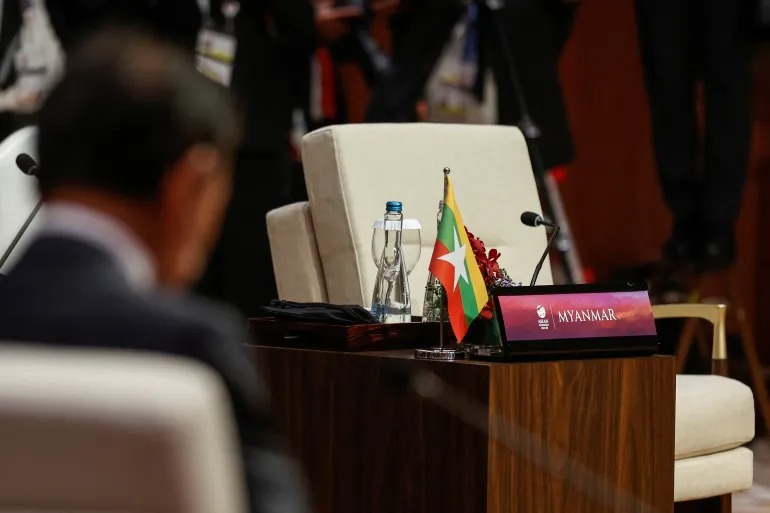Myanmar has vehemently rejected a recent statement by the Association of Southeast Asian Nations (ASEAN), condemning the ongoing violence in the nation as ‘one-sided.’ The ASEAN leaders, meeting in Jakarta, expressed their strong condemnation of the violence that has persisted since Myanmar’s military coup in February 2021. This refusal to acknowledge responsibility has further strained Myanmar’s already tenuous relationship with its regional neighbors and has cast doubts on the prospects for peace in the beleaguered nation.
ASEAN Condemns Myanmar’s Violence
As the ASEAN leaders gathered in Jakarta, they wasted no time in addressing the grave situation unfolding in Myanmar. The 10-member bloc issued a resounding condemnation of the ongoing violence, squarely placing the blame on the shoulders of the military generals who seized power over two years ago. The statement pointedly urged the Myanmar Armed Forces, in particular, to immediately de-escalate the violence and cease targeted attacks on civilians, as well as essential infrastructure like schools, hospitals, and markets.
Myanmar’s Isolation within ASEAN
Myanmar’s rejection of the ASEAN statement has underscored its isolation within the regional bloc. Although Myanmar is a member of ASEAN, it has faced exclusion from high-profile events due to its failure to implement the previously agreed-upon five-point consensus. This consensus aimed to resolve the crisis that ensued after the military coup. Regrettably, the situation in Myanmar has only worsened since then, with allegations of war crimes hanging over the military for its brutal treatment of civilians.
Myanmar’s Accusation of Bias
In a sharp rebuttal published in the state-run Global New Light of Myanmar, the country’s foreign ministry asserted that the ASEAN statement was neither objective nor impartial. Accusing the ASEAN leaders of bias, Myanmar expressed its displeasure at not having its “view and voices” considered during the drafting of the statement. Despite being consulted, Myanmar claims its concerns were not adequately taken into account, further deepening the divide between the nation and its regional counterparts.
Myanmar’s upcoming role as the chair of the 10-member ASEAN grouping in 2026, a position usually rotated annually, has also been called into question. In a significant shift, regional leaders have already agreed that the Philippines will assume the chairmanship in 2026 instead. This move has disrupted the traditional alphabetical order of chairmanship based on the English names of member states. Myanmar, which had previously chaired the organization in 2014 under its first civilian head of state, now faces a precarious future within ASEAN.
In conclusion, Myanmar’s rejection of the ASEAN statement condemning violence as ‘one-sided’ has further strained its already fraught relationship with its regional neighbors. The international community watches with concern as the nation grapples with political turmoil and ongoing violence. As ASEAN leaders attempt to broker peace and stability in Myanmar, the road ahead remains uncertain, with the potential for further isolation and conflict looming large.
















